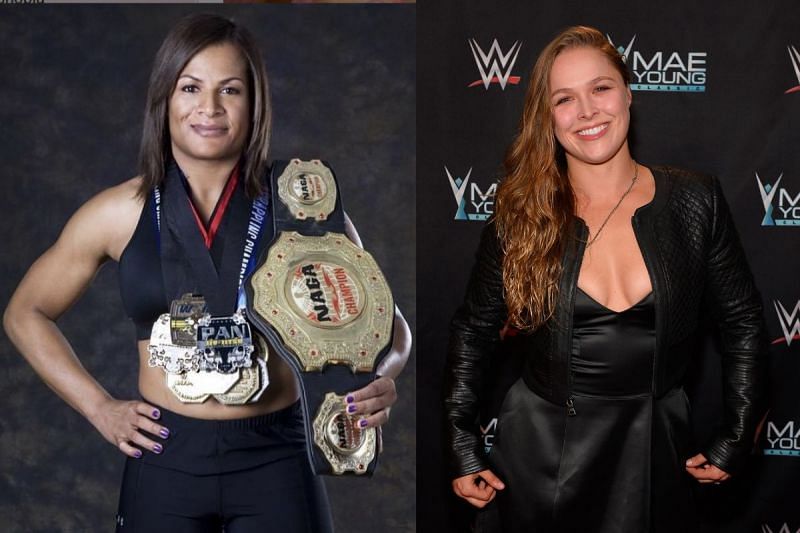
"She does have an unfair advantage" - When Ronda Rousey weighed in on transgender fighter Fallon Fox fighting in women's MMA
![When Ronda Rousey gave her honest opinion on Fallon Fox [Left image credit: @fallon_fox via Instagram]](https://staticg.sportskeeda.com/editor/2021/09/76185-16315250130219-800.jpg?w=500)
Fallon Fox made history when she became the first MMA fighter to come out as transgender and compete in a professional bout.
TMZ Sports caught up with women's MMA trailblazer Ronda Rousey after Fox's victory over Tamikka Brents in 2014. They asked for her opinion on transgender fighters competing in women's divisions.
"I think it's one of those situations where it is a case by case scenario thing. I actually tried to research a lot and I feel that if you already go through puberty as a man, it's something you can't really reverse. But there are people - a man identifying as woman or a woman identifying as man - that are earlier on put on hormone replacement therapy until they're of legal age, and they can make the decision to get the sex change later. That would be acceptable, that would be fine because they won't already have developed the bone structure of a man, the muscular structure. You can't just reverse that. There's no 'undo' button on that," Ronda Rousey said.
When Fallon Fox last fought at the Capital City Cage Wars event CCCW - The Undertaking in 2014, she broke her opponent Tamikka Brents' orbital bone. Fox became a topic of controversy following the incident as several MMA experts asked whether transgender fighters should be allowed to compete in the women's divisions.
The conversation has come up again as transgender fighter Alana McLaughlin recently emerged victorious on her MMA debut against Celine Provost at Combate Global.
Fallon Fox previously revealed that she struggled with gender identity issues since childhood. She finally underwent gender reassignment surgery along with breast augmentation and hair transplant procedures in 2006 in Bangkok, Thailand.
Ronda Rousey said that since Fallon Fox had gone through puberty in a male body, she had developed a male's bone and muscular structure. This, according to 'Rowdy,' is an unfair advantage for Fox.
"On a case by case basis, you really have to look at that. But in Fallon Fox's case, I think that she does have an unfair advantage. It is outside of her control, but that unfortunately is her scenario. It's unfortunate especially for her competition as well."
Watch the interview below:
Ronda Rousey took a similar stance in 2013 in an interview with the New York Post. She said it would become a "socially difficult situation" if someone like Fallon Fox was to become a UFC champion.
Do transgender fighters like Fallon Fox truly have an advantage over other female competitors?
Whether transgender women like Fallon Fox should be allowed to fight in the same division as cisgender women has been a longstanding debate. At the center of the discussion is the argument that transgender fighters would have more power and strength than their opponents.
However, according to expert opinions, that is not necessarily true.
In a March 2013 interview conducted by Bloody Elbow, leading gender reassignment surgeon Dr. Marci Bowers stated that hormone treatment ensures transgender athletes have almost similar anatomical structures as their cisgender counterparts.
"Most measures of physical strength minimize, muscle mass decreases, bone density decreases, and they become fairly comparable to women in their musculature. After as much time as has passed in her case, if tested, she would probably end up in the same muscle mass category as her biologically born female counterpart," Dr. Bowers said.
Dr. Bowers' words were reflected by Dr. Sherman Leis, a world-renowned surgeon, professor, lecturer and founder of the Philadelphia Center for Transgender Surgery.
You can read the full interview here.